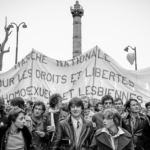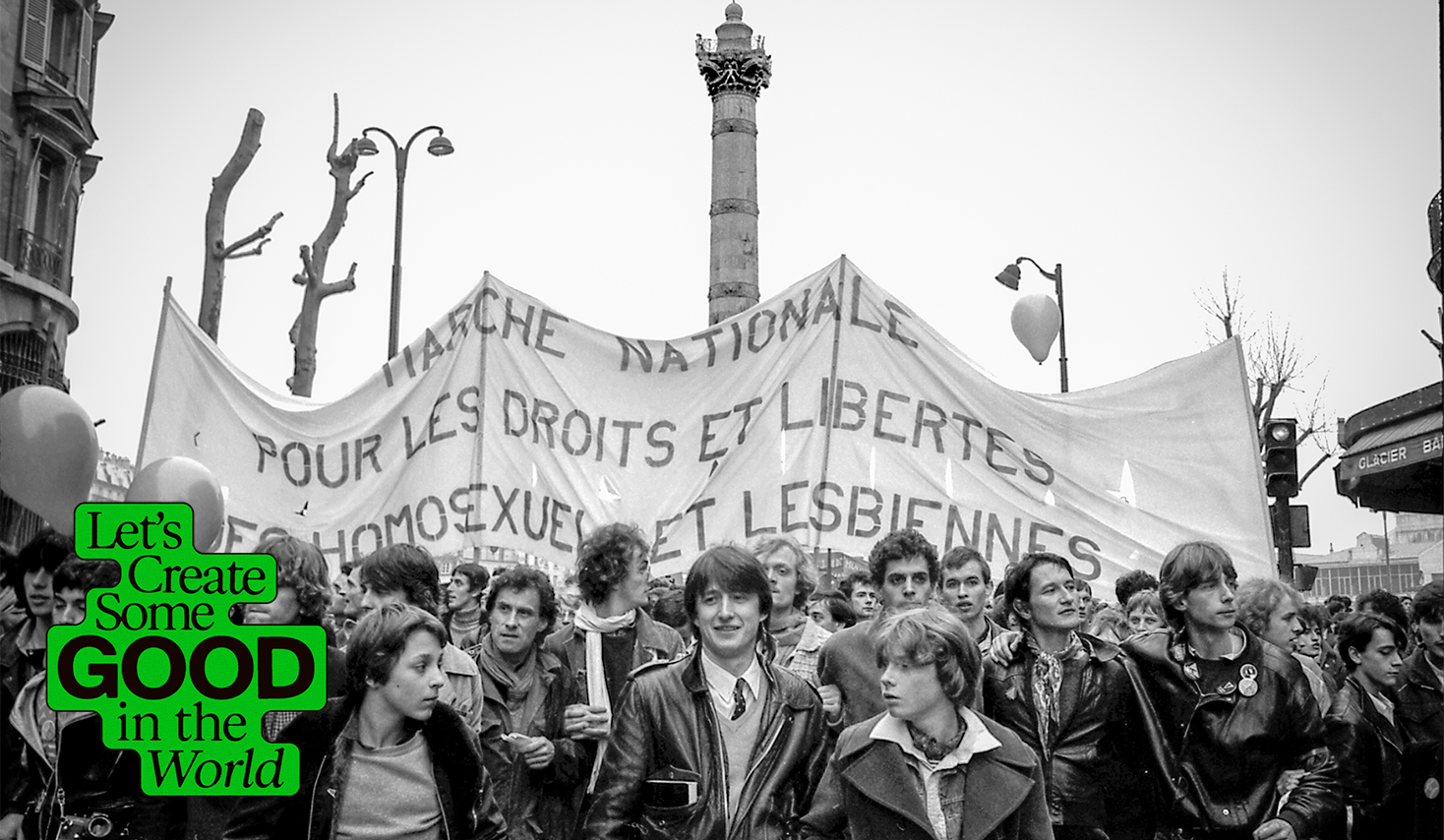
The breakdown between “activists” and “organizers” for our justice column LET’S MAKE SOME GOOD IN THE WORLD
WORDS BY ELIEL CRUZ
PHOTOGRAPHY BY Claude TRUONG-NGOC (Ctruongngoc)

Sometime in the 2000s, many became an “activist” for simply speaking out about injustice. In the wake of the 2020 uprisings, now everyone is an “activist,” at least in their Instagram bio. This is not necessarily a bad thing, as every person with a conscience should use their platform to advocate for good in the world, but this also allows many — celebrities, authors, musicians, influencers — to co-opt activism’s ethos for their personal brand by doing what I’d call the bare minimum.
As the conversations on white supremacy, oppression, and systemic issues came to the surface in recent years, an expectation has grown for everyday people, regardless of their social following size, to use their platform to speak out on the trending injustice. As I’ve written before, “Our social media accounts are extensions of the ways we interact, learn, and connect with each other. And so we must also use them in ways that reflect our commitment to building the type of communities and world we need.” This includes speaking out in the digital world. The issue to me is that some see Story-sharing as activism in and of itself and fail to find deeper ways to change the world around them.
The question to ask yourself is: What is the material impact you’re making offline?
The difference between activists and organizers
In their book Let This Radicalize You, abolitionist organizers Kelly Hayes and Mariame Kaba make an important distinction between those who do activism and those who are organizers. Activism, they say, “encompasses all the ways we show up for justice.” It can look like fundraising, attending marches or rallies, or bringing awareness to an issue on social media, but it all can be done alone.
Organizing is done with others, in which we are accountable to each other, and includes “relationship building and power analysis,” Hayes and Kaba write. Organizing is a specific, strategic methodology in service of movement building, as opposed to simply showing up for the movement. Though everyone does it differently, organizing can’t be done in a silo.
During this time in our history where everyone and anyone is an activist, we desperately need more organizers.
We’re in a period of social justice awareness that’s reached critical mass – whether it be the onslaught of legislative and cultural attacks against trans people, climate change and its impending catastrophic effects across the globe, homelessness, food insecurity, or a free Palestine. We’re thoroughly aware of all the bad in the world, but it’s time to get to work and create some good in the world. We need more organizers.
It’s my worldview that everyone, even you reading this, has a responsibility to give back to the world, and those with larger platforms and access to resources must be equitable in how they give back, beyond social media. You don’t have to work at a nonprofit organization or produce full-scale protests in order to be an organizer. It’s about figuring out the area of the world you’re motivated to change, finding the right people, and building something with them.
Organizing is a specific, strategic methodology in service of movement building, as opposed to simply showing up for the movement. Though everyone does it differently, organizing can't be done in a silo.
Social Media is the beginning, not the end of the work.
With a rise in social media advocacy, many are using platforms like Instagram to share aesthetically pleasing infographics and videos that, arguably, do more to promote their platform than to create tangible impacts on the affected communities. Consequently, many people feel that sharing those posts to bring awareness is sufficient engagement with social justice. While social media is an incredibly effective and powerful tool, you can take it a step further through digital organizing.
“Digital organizing” is more than posting on social. The overarching goal of digital organizing is to move people to take action in the real world and make deeper engagements with a long-term campaign. Digital organizing can be used to lead people to sign a petition, or donate money, and ultimately, get someone to show up, rally, protest, or another in-person event. It often involves mass DMing, distributing folders with assets/infographics informing about your cause, and working at the interpersonal level. I’ve used digital organizing to get people to pack courts and have seen creative digital actions: like when queer men change their profile photo on Grindr to an image about a protest, flooding the grid with information on where to join.
If your social media accounts were to disappear tomorrow, what impact could you have?
Finding your “political home” should be a priority for any organizer. A political home is a place where you are in community with other organizers who push you to think deeper, hold you accountable to your politics and actions, and function as a hub for organizing and experimentation in advocacy. It can look like providing access to a space to host regular community meetings, launching a mutual aid fund, or just incentivizing a collective of friends with similar values to commit to working together regularly to make a difference.
Organizing is about building movements. What have you built?
Activism is often a one-off engagement, whereas organizing is about building public power. Usually, people think of power as something only available to people with money or in positions of authority over others, like in the government, with institutions like school systems. While these are traditional forms of power, organizing is about building people power that pushes, agitates, or disrupts those with traditional power over others. Though it’s easier said than done, you can use dedicated work and outreach to amass thousands, or even millions of people to demand change.
With a rise in social media advocacy, many are using platforms like Instagram to share aesthetically pleasing infographics and videos that, arguably, do more to promote their platform than to create tangible impacts on the affected communities.
Organizing is about sustaining movement work
Campaigns to change issues, legislation, or bring justice to people impacted by injustice can be a typically long-term, multi-year project that requires strategy, power analysis, identifying key targets, and a lot of tenacity. For example, I work with Justice Committee, an organization working to end police and racialized violence in New York City. Justice Committee supports families with loved ones killed by the NYPD by guiding them through the complicated process of holding police officers accountable. More often than not, these campaigns can take upwards of 5-6 years and require on-the-ground advocacy and sustained digital comms plans that keep the story in the forefront of people’s minds.
For electoral politics, identifying legislation to enact or change means organizing lobby days and sustaining relationships with elected officials, allies, and politicians whose minds need changing. Organizing is a long-term, often lifelong project in which we will be part of many campaigns to make a difference.
Who are you accountable to?
My friend, organizer, and author Raquel Willis often speaks about her “accountability circle”: people that check in on her, and who she can tap when she’s unsure if she’s moving in the right ways. Every organizer should have a group of people who aren’t afraid to send you that text or give you a call when you start to stray. In addition to that group of people who hold you accountable, you must also work laterally with the communities you aim to advocate for. Whose life will be made better by your organizing? And how can you get those people in the room with you when you create the strategy? We must always keep the people at the center of our organizing to keep us true to our politics.
The post Everyone’s an “activist.” We need more organizers. appeared first on GAY TIMES.

0 Comments